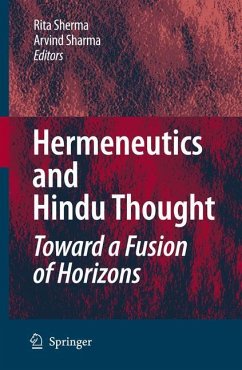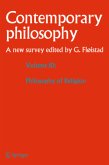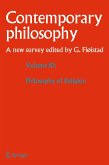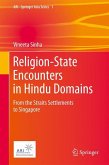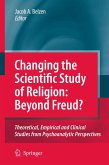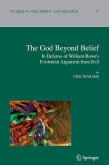The advent of Hindu Studies coincides with the emergence of modern hermeneutics. Despite this co-emergence and rich possibilities inherent in dialectical encounters between theories of modern and post-modern hermeneutics, and those of Hindu hermeneutical traditions, such an enterprise has not been widely endeavored. The aim of this volume is to initiate such an interface. Essays in this volume reflect one or more of the following categories: (1) Examination of challenges and possibilities inherent in applying Western hermeneutics to Hindu traditions. (2) Critiques of certain heuristics used, historically, to "understand" Hindu traditions. (3) Elicitation of new hermeneutical paradigms from Hindu thought, to develop cross-cultural or dialogical hermeneutics.
Applications of interpretive methodologies conditioned by Western culture to classify Indian thought have had important impacts. Essays by Sharma, Bilimoria, Sugirtharajah, and Tilak examine these impacts, offering alternate interpretive models for understanding Hindu concepts in particular and the Indian religious context in general.
Several essays offer original insights regarding potential applications of traditional Hindu philosophical principles to cross-cultural hermeneutics (Long, Bilimoria, Klostermaier, Adarkar, and Taneja). Others engage Hindu texts philosophically to elicit deeper interpretations (Phillips, and Rukmani). In presenting essays that are both critical and constructive, we seek to uncover intellectual space for creative dialectical engagement that, we hope, will catalyze a reciprocal hermeneutics.
Applications of interpretive methodologies conditioned by Western culture to classify Indian thought have had important impacts. Essays by Sharma, Bilimoria, Sugirtharajah, and Tilak examine these impacts, offering alternate interpretive models for understanding Hindu concepts in particular and the Indian religious context in general.
Several essays offer original insights regarding potential applications of traditional Hindu philosophical principles to cross-cultural hermeneutics (Long, Bilimoria, Klostermaier, Adarkar, and Taneja). Others engage Hindu texts philosophically to elicit deeper interpretations (Phillips, and Rukmani). In presenting essays that are both critical and constructive, we seek to uncover intellectual space for creative dialectical engagement that, we hope, will catalyze a reciprocal hermeneutics.
From the reviews:
"The edited collection on hermeneneutics and Hindu thought brings contributions from scholars covering Indian studies, hermeneutics, comparative religion as well as cross-cultural studies. ... I therefore strongly believe the book on hermeneutics and Hindu thought will vitally contribute to the various sediments of uncritical and ethnocentric uses of hermeneutics in humanities and social sciences at large." (Lenart Skof, Sophia, Vol. 48 (4), 2009)
"This present volume uses Hans-Georg Gadamer's concept of the 'fusion of horizons' by engaging Hindu hermeneutical philosophies and theologies ... and by exposing wrong-minded Western interpretations of India. ... It must be aimed at scholars already working on Indian thought. ... the volume is an important contribution to Hindu studies, not only representing those who apply a more sensitive hermeneutic when reading Indian texts, but offering powerful insights as to how this can be accomplished further." (Jonathan Edelmann, Journal of Hindu Studies, Vol. 4 (2), July, 2011)
"The edited collection on hermeneneutics and Hindu thought brings contributions from scholars covering Indian studies, hermeneutics, comparative religion as well as cross-cultural studies. ... I therefore strongly believe the book on hermeneutics and Hindu thought will vitally contribute to the various sediments of uncritical and ethnocentric uses of hermeneutics in humanities and social sciences at large." (Lenart Skof, Sophia, Vol. 48 (4), 2009)
"This present volume uses Hans-Georg Gadamer's concept of the 'fusion of horizons' by engaging Hindu hermeneutical philosophies and theologies ... and by exposing wrong-minded Western interpretations of India. ... It must be aimed at scholars already working on Indian thought. ... the volume is an important contribution to Hindu studies, not only representing those who apply a more sensitive hermeneutic when reading Indian texts, but offering powerful insights as to how this can be accomplished further." (Jonathan Edelmann, Journal of Hindu Studies, Vol. 4 (2), July, 2011)

